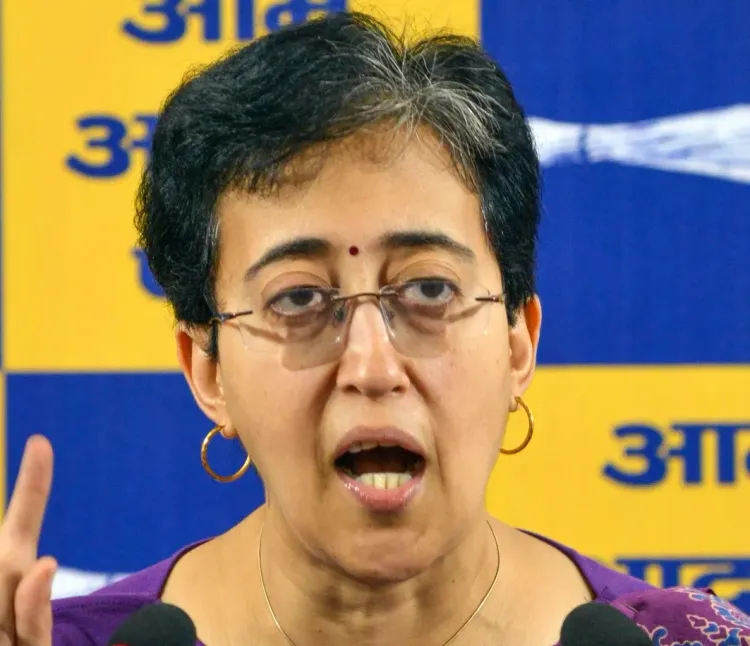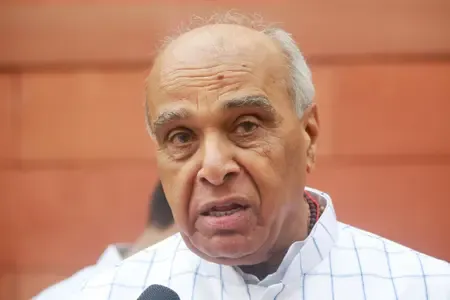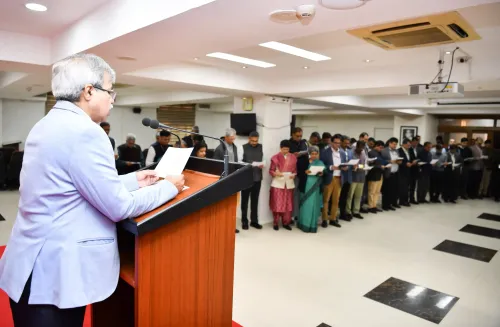Why is AAP Opposing the Education Bill in Delhi Assembly?

Synopsis
Key Takeaways
- AAP opposes the education bill for its delayed introduction.
- The bill aims to regulate school fees in Delhi.
- It proposes a three-tier fee regulation committee system.
- Penalties for schools violating fee regulations are included.
- Parental involvement in fee governance is emphasized.
New Delhi, Aug 4 (NationPress) The Aam Aadmi Party (AAP), serving as the Opposition, declared on Monday its intention to oppose the education bill focused on regulating school fees. Leader of Opposition in the Delhi Assembly, Atishi, criticized the government for procrastinating the bill's introduction in the House for four months.
During a press conference prior to the commencement of the Assembly’s Monsoon Session, Atishi accused the government of using the delay as a strategy to allow private schools to exploit parents financially during the current academic year.
She advocated that until the Delhi School Education (Transparency in Fixation and Regulation of Fees) Bill 2025 is finalized, it should be sent to a select committee of the Assembly. This committee would gather opinions from parents to better shape the bill.
The former Chief Minister emphasized, “Until the bill is finalized, all private educational institutions must be instructed to maintain their fees at the same level as in 2024-25.”
Atishi insisted on including a provision for the regular auditing of school finances in the bill.
“The legislation appears to be a mechanism to protect private schools from any government penalties, granting them unrestricted authority to raise fees in 2025-26,” Atishi remarked.
She pointed out that although the bill was drafted in April, it is only being presented in August after a significant delay.
“This delay will be leveraged by the government to implement the bill in the next academic year, thereby allowing private schools to charge exorbitant fees this year,” she noted.
Additionally, the LoP criticized the proposal allowing representatives from school management to lead fee fixation committees in private institutions.
The Delhi School Education (Transparency in Fixation and Regulation of Fees) Bill 2025 is designed to establish a clear, equitable, and accountable framework for fee regulation within Delhi's educational system, aiming to protect students from undue pressure and actively engage parents in governance related to fees.
The bill was sanctioned by the Delhi Cabinet in April 2025 in response to numerous complaints regarding unauthorized fee hikes and harassment related to unpaid fees.
In addition to introducing a three-tier committee system for fee determination and grievance resolution, the legislation proposes fines of up to Rs 50,000 per student for schools found in violation.
The three-tier system comprises the School-level Fee Regulation Committee, District Fee Appellate Committee, and a Revision Committee at the state level. These committees are expected to resolve disputes within 30 days, ensuring prompt outcomes.









